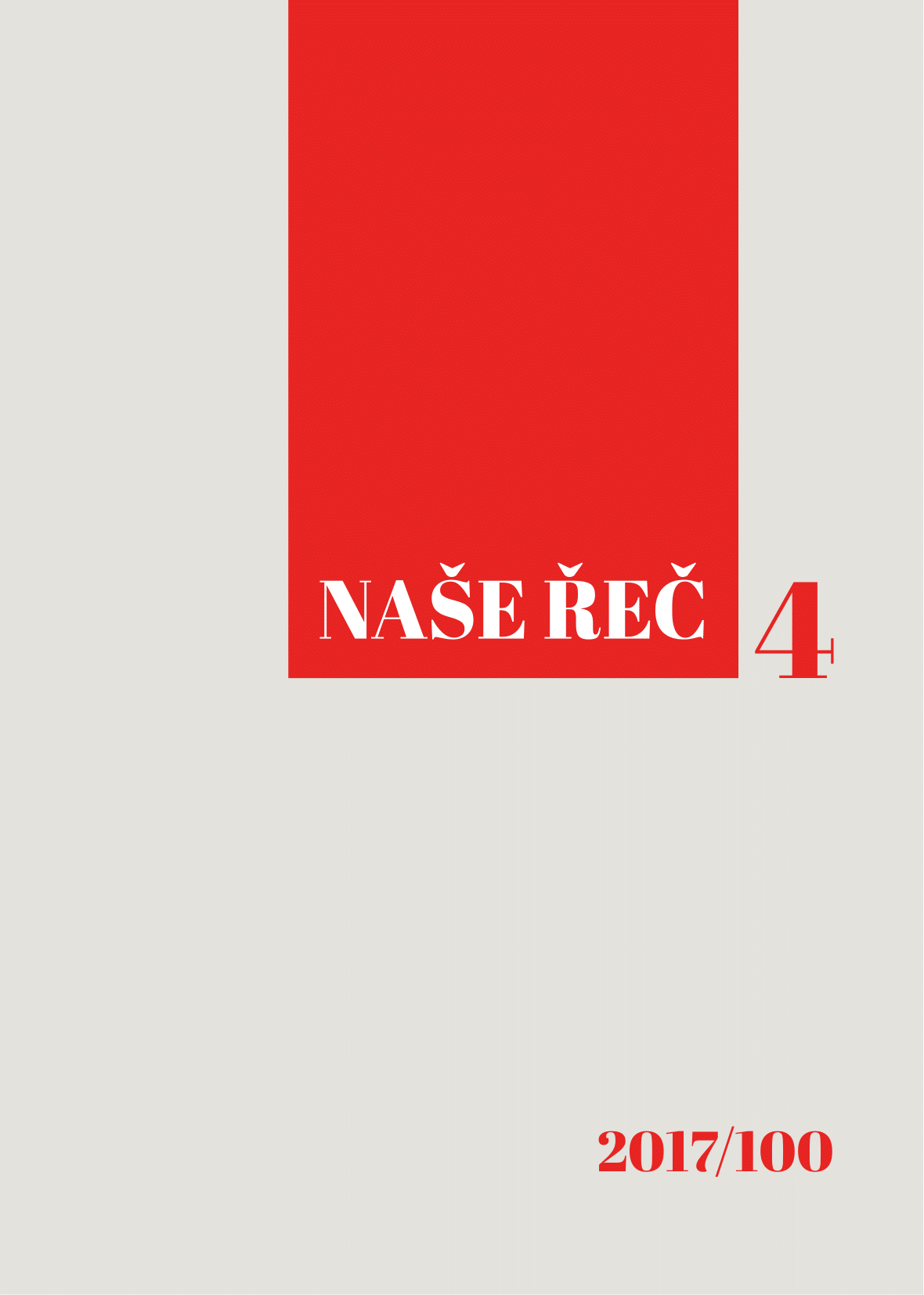O modálních predikativech slovesného původu typu To přende, (se) patři… zbórat
On modal predicatives of verbal origin: To přende, (se) patři… zbórat
Author(s): Milena ŠipkováSubject(s): Syntax, Western Slavic Languages
Published by: AV ČR - Akademie věd České republiky - Ústav pro jazyk český
Keywords: dialect;verbal modal predicatives;modal verbs;modalization;Dictionary of Czech Dialects;
Summary/Abstract: The paper describes the process of modalization of originally verbal expressions such as přijde (in the dialect přende, přydže...), (se) patří...; it explains the causes of this process and its manifestation (consequences) on the morphological and syntactic levels: ta stodola / to stodolo přende / (se) patři jož zbórat... The topic was initiated during work on the Dictionary of Czech Dialects (A–C; available from sncj.ujc.cas.cz) but also by numerous articles on modal expressions (modal verbs and modal predicatives) by Josef Zubatý, co-founder and previous editor of the journal Naše řeč (Our Speech). The process of modalization of these verbal expressions rests on the fact that: (a) they are followed by an infinitive; (b) they keep the form of the 3rd person sg.; (c) they tend toward reflexivization, i.e. the reflexive verbal form (patří / patří se, sluší / sluší se…); (d) these expressions are part of both subject sentences (with the patient in the nominative case) and subjectless sentences (with the patient in the accusative case).
Journal: Naše řeč
- Issue Year: 100/2017
- Issue No: 4
- Page Range: 265-271
- Page Count: 7
- Language: Czech

